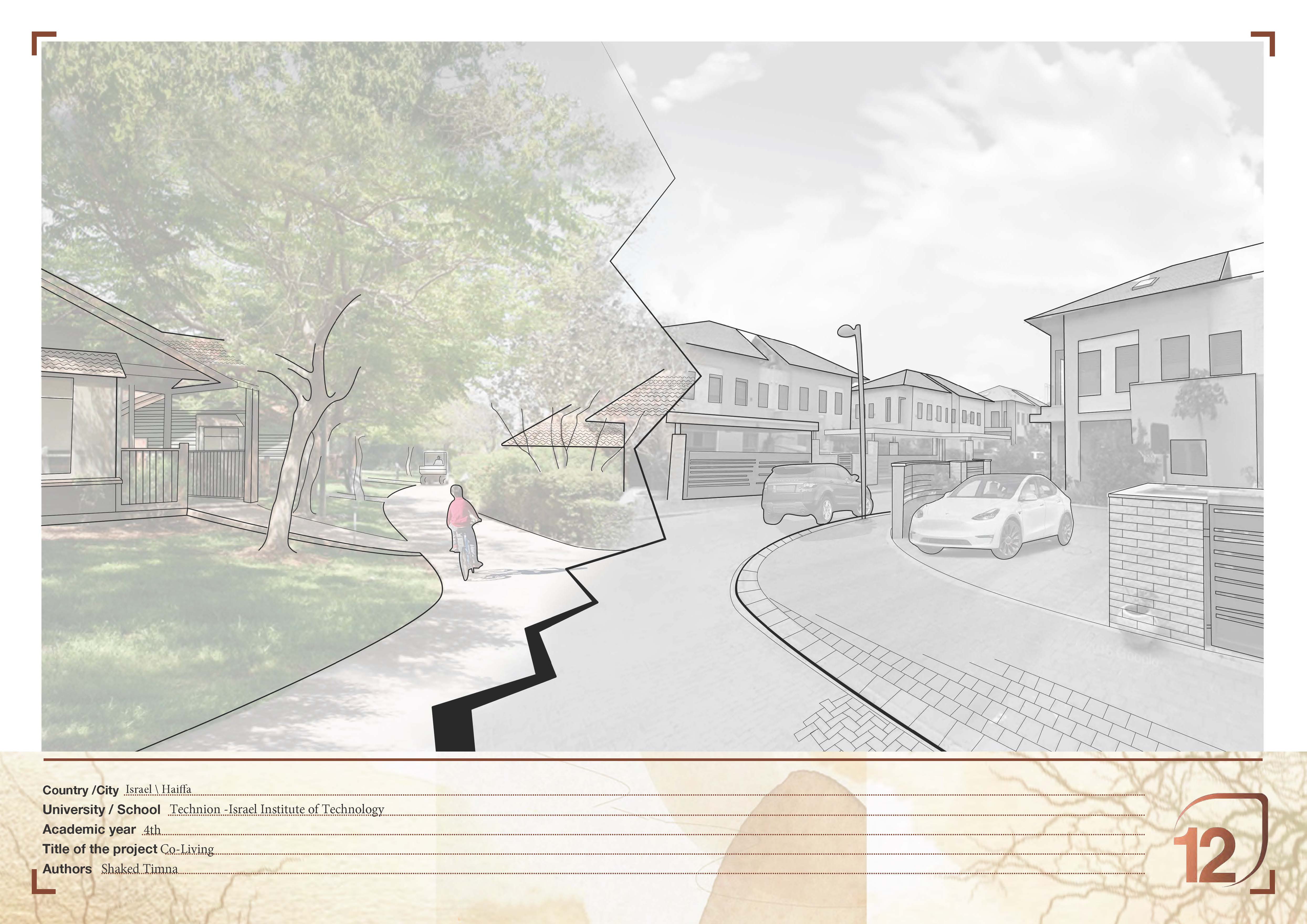
Co-Living: Kibbutz Expansion and Preservation of its Identity
Final Project Studio 70
Technion - Israel Institute of Technology
The cooperative settlement form of the ‘kibbutz’ is unique in the world. At the core of its concept are the values of solidarity, sustainability, and connection to nature. The rise of the neoliberal approach led to fundamental changes in the cooperative kibbutz lifestyle, creating the 'renewed' (semi-cooperative) kibbutz, a society struggling for its existence and identity. To address the challenges of urbanization and overcrowding, most established kibbutz expansions have resulted in a suburban typology that has eroded the unique kibbutz character.
This project focuses on a ‘renewed’ coastal kibbutz called Nachsholim, situated on a popular beach. Firstly, and most importantly, it proposes methods to gradually double the kibbutz’s population while preserving a sense of community and the natural surroundings. The proposed construction typologies create spaces that enhance interpersonal as well as ‘inter-natural’ encounters. In addition, connected living units and peripheral parking will be used to naturally prevent gentrification. Secondly, my goal is to bring the exterior coastal landscape into the kibbutz, merging it with its typical grass lawns and pastoral gardens. Finally, I intend to expand the coastal buffer offering public access to the beach in order to more evenly balance the space shared by kibbutz members and visitors.
I believe that increasing the population and economic opportunities will create a sustainable living space that reduces commuting. Preserving the kibbutz concept and adapting it to the modern era will invite people to be more involved, connected, and actively responsible for their living spaces, together.
